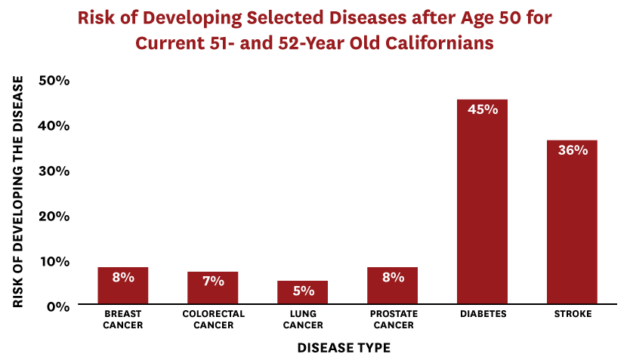Chronic Disease
Our work in Chronic Disease
-
Economic Value of Anti–Vascular Endothelial Growth Factor Treatment for Patients With Wet Age-Related Macular Degeneration in the United States
A new study suggests benefits to patient health and society top billions of dollars, or more, if adherence to wet age-related macular degeneration treatments could be improved.
Categorized in -
Treatments for the Leading Cause of Blindness in the US Generate $0.9 to $3 Billion for Society, According to New Economic Analysis
A new study suggests benefits to patient health and society top billions of dollars, or more, if adherence to wet age-related macular degeneration treatments could be improved.
Categorized in -
The Potential Emergence of Disease-Modifying Treatments for Alzheimer Disease: The Role of Primary Care in Managing the Patient Journey
Research by Jakub Hlavka and colleagues suggests a combination of brief cognitive tests and blood-based biomarker tests will allow primary care physicians to identify patients with potential early stage Alzheimer’s disease efficiently and triage them for further evaluation.
Categorized in -
The Affordable Care Act and Health Insurance Coverage Among People With Diagnosed and Undiagnosed Diabetes: Data From the National Health and Nutrition Examination Survey
Insurance coverage can change the health trajectory of people with diabetes by facilitating timely diabetes diagnosis and management.
Categorized in -
Diabetes Studies Reveal How Insurance and Ethnicity Can Affect Outcomes
USC Schaeffer Center experts found significant racial and ethnic disparities in diabetes complications and examined the impact of the ACA on patients with diabetes in two separate studies.
Categorized in -
Extended-Release Formulation and Medication Adherence
Suboptimal adherence to chronic medications undermines treatment effectiveness and costs the U.S. as much as $289 billion annually. This is the first study to analyze the impact of extended-release formulations on long-term adherence.
Categorized in -
Are We Ready to Treat Alzheimer’s?
Alzheimer’s research has been associated with many more downs than ups, but with Biogen’s surprising decision to file for market authorization of aducanumab, the next major challenge is for national healthcare systems to get ready.
Categorized in -
Future Health Dividends for California: Valuing Medical Innovations
Reducing the incidence of four common cancers (breast, colon, lung, and prostate cancer), diabetes and stroke by 50 percent would generate nearly $900 billion in social value for California between 2018 and 2040. Just a 10 percent decline generates $175 billion over the same period.
Categorized in -
Accounting for Hope: Using ‘Mean Survival Gain’ to Price New Cancer Drugs
Outrage about the rising prices of prescription drugs has put cancer drugs in the spotlight. But there’s an important question that needs to be asked: What is the best metric to evaluate them?
Categorized in -
Who Would Have Believed it? Markets Can Reduce the ‘True’ Price of Cancer Drugs
When it comes to cancer, however, it is the price of health — not the price of drugs — that matters. As we think about ways to wring value out of the health care system, we acknowledge that CMS reforms and markets seem to be working in therapeutic areas with rapid innovation.
Categorized in








